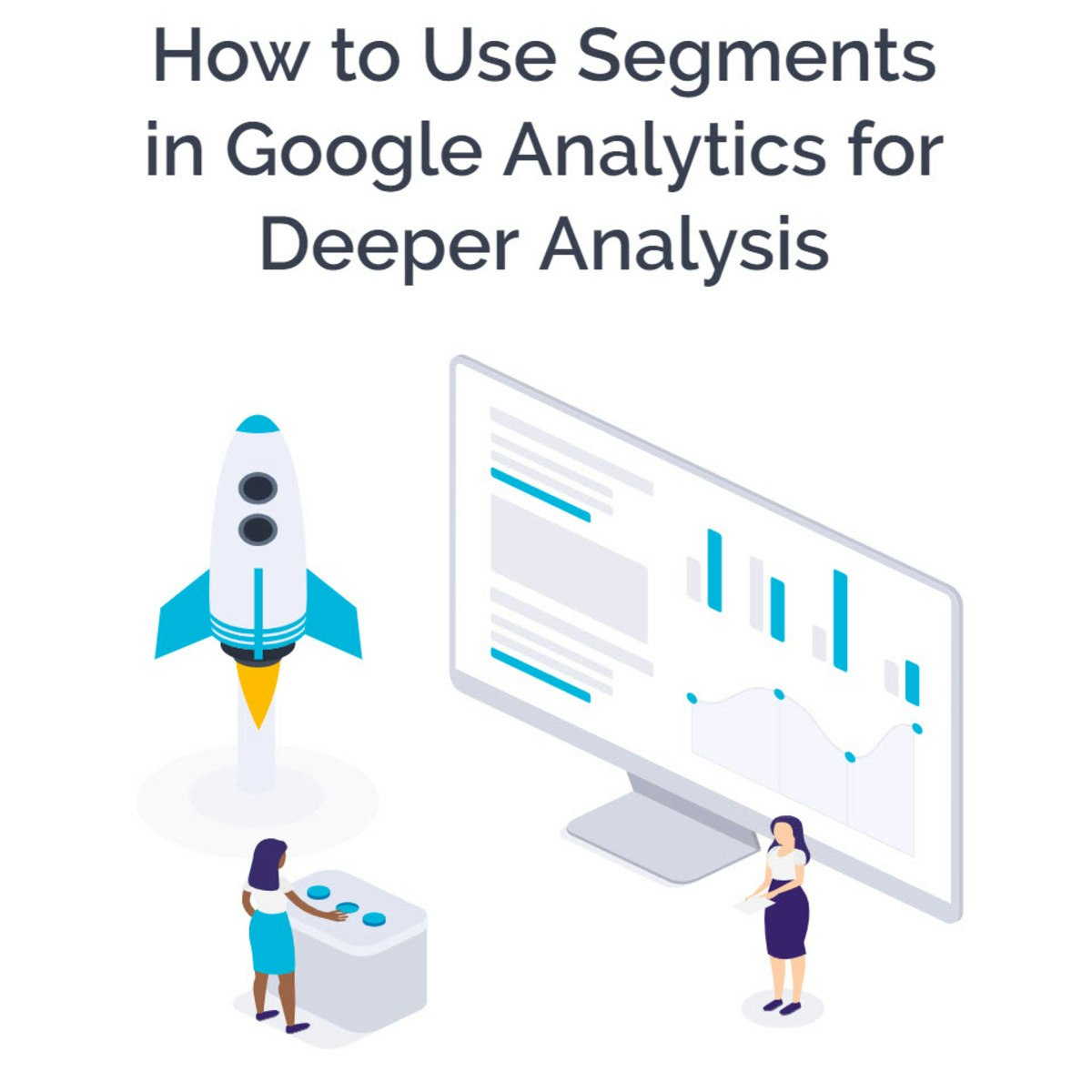Digital Marketer
Embarking on a Career as a Digital Marketer
Digital marketing is the practice of promoting products, services, or brands using digital channels and technologies. It encompasses a wide range of online tactics aimed at reaching consumers through the devices they use daily, such as computers, smartphones, and tablets. Unlike traditional marketing methods that rely on print, television, or radio, digital marketing leverages the internet and electronic media to connect with audiences.
Working as a digital marketer can be dynamic and rewarding. You might find excitement in analyzing data to understand consumer behavior, crafting compelling online campaigns that drive engagement, or experimenting with new technologies to reach audiences in innovative ways. The field is constantly evolving, offering continuous learning opportunities and the chance to make a measurable impact on business success.
Understanding the World of Digital Marketing
What is Digital Marketing?
At its core, digital marketing involves using online platforms and digital communication to achieve marketing objectives. This includes activities like search engine optimization (SEO), content creation, social media engagement, email campaigns, pay-per-click (PPC) advertising, and analyzing web traffic. The goal is to connect with potential and existing customers where they spend their time online.
Digital marketing differs significantly from traditional marketing by offering greater measurability and targeting capabilities. Marketers can track campaign performance in real-time, gather detailed audience insights, and tailor messages to specific demographics or behaviors. This data-driven approach allows for more precise strategies and efficient use of marketing budgets.
Key objectives often include increasing brand visibility online, generating qualified leads for the sales team, driving website traffic, and ultimately, converting prospects into loyal customers. Success is measured through various metrics tied to these goals, such as website conversion rates, click-through rates on ads, or social media engagement levels.
The field has rapidly evolved since the advent of the commercial internet in the 1990s. Early efforts focused on simple websites and email blasts. Today, it incorporates sophisticated strategies across multiple platforms, driven by data analytics, artificial intelligence, and a deep understanding of the digital consumer landscape.
A Day in the Life: The Digital Marketer Role
Daily Tasks and Specializations
A digital marketer's day is often varied, involving a mix of analytical and creative tasks. Responsibilities might include analyzing campaign performance data, planning and executing new marketing initiatives, managing social media accounts, writing blog posts or ad copy, coordinating with designers or web developers, and staying updated on industry trends.
The field offers numerous specializations. Some professionals focus on Search Engine Optimization (SEO), working to improve a website's visibility in search engine results. Others specialize in Search Engine Marketing (SEM), managing paid advertising campaigns on platforms like Google Ads. Social media marketing involves engaging audiences on platforms like Facebook, Instagram, and TikTok, while content marketing focuses on creating valuable content like blogs, videos, and infographics to attract and retain an audience.
Digital marketers rarely work in isolation. They collaborate closely with sales teams to align marketing efforts with revenue goals, with product teams to understand offerings, and with creative teams (designers, writers, videographers) to produce marketing materials. Effective communication and project management skills are crucial.
Success in digital marketing is measured by Key Performance Indicators (KPIs). These vary depending on the role and campaign goals but often include metrics like website traffic, conversion rates, cost per lead, customer acquisition cost (CAC), return on ad spend (ROAS), and social media engagement rates. Regularly monitoring and reporting on these KPIs is a key part of the job.
Building a Foundation: Formal Education Options
University Degrees and Programs
While not always mandatory, a formal education can provide a strong foundation for a digital marketing career. Relevant undergraduate degrees often include Marketing, Communications, Business Administration, or even fields like Statistics or Computer Science, given the increasing importance of data analysis and technology.
These programs typically cover core marketing principles, consumer behavior, market research, communication strategies, and business fundamentals. Increasingly, universities offer courses or concentrations specifically focused on digital marketing topics like SEO, social media marketing, and digital analytics.
For those seeking deeper expertise or leadership roles, graduate programs can be beneficial. Master's degrees in Marketing, MBA programs with a marketing focus, or specialized Master's programs in Digital Marketing or Marketing Analytics offer advanced knowledge and strategic perspectives. These programs often incorporate case studies, simulations, and project work.
Research opportunities may exist within university settings, particularly in areas like digital consumer behavior, the effectiveness of online advertising, or the analysis of large datasets from digital platforms. Furthermore, many universities foster partnerships with industry, offering internships, guest lectures, and collaborative projects that provide valuable real-world experience and networking opportunities.
Learning Online: Flexible Paths to Digital Marketing Skills
Acquiring Skills Through Online Courses
The digital marketing landscape changes rapidly, making continuous learning essential. Online courses offer a flexible and accessible way to acquire necessary skills, whether you're starting fresh, pivoting careers, or aiming to upskill in your current role. Platforms like OpenCourser provide access to thousands of courses covering every facet of digital marketing.
Essential technical skills often form the bedrock of a digital marketer's toolkit. Proficiency in web analytics platforms like Google Analytics is crucial for understanding website traffic and user behavior. Familiarity with Customer Relationship Management (CRM) systems (e.g., HubSpot, Salesforce) helps manage customer interactions, while experience with email marketing platforms (Mailchimp, Constant Contact) is key for campaign execution.
Beyond technical tools, creative skills are vital. Effective content creation – writing compelling copy, producing engaging videos, or designing eye-catching graphics – is central to many digital marketing roles. Understanding User Experience (UX) principles helps ensure that websites and digital campaigns are user-friendly and effective.
These introductory courses can help you build foundational knowledge in key areas like SEO, content creation, and social media strategy. They are suitable for beginners looking to understand the core concepts.
Many online platforms offer certification programs recognized by the industry. While certifications alone don't guarantee a job, they can demonstrate specific competencies to potential employers (e.g., Google Ads certification, HubSpot Content Marketing certification). Building a portfolio showcasing your skills through practical projects—like creating a sample social media campaign, optimizing a website for SEO, or writing blog posts—is often more impactful than certifications alone. Online courses frequently include projects that can contribute to your portfolio.
For those considering a career change, the journey into digital marketing can feel daunting but also exciting. Online learning provides a low-risk way to explore the field and build foundational skills at your own pace. Remember that many successful digital marketers come from diverse backgrounds. Your unique experiences can be an asset. Start small, focus on learning one area well, and build confidence through practice projects. OpenCourser's Learner's Guide offers resources on structuring your learning and staying motivated.
These more advanced courses delve into specific strategies like local SEO, video marketing, and AI applications in marketing, suitable for those looking to specialize or enhance existing skills.
Exploring different learning resources is easy on OpenCourser. You can browse the Marketing category, save courses to your list for later comparison using the "Save to list" feature, and find potential deals on courses to make learning more affordable.
Climbing the Ladder: Career Growth in Digital Marketing
From Entry-Level to Leadership
A career in digital marketing offers various pathways for growth. Entry-level roles often include titles like Marketing Coordinator, Social Media Assistant, or Junior SEO Specialist. These positions typically involve supporting senior marketers, executing specific tasks within campaigns, and learning the fundamentals through hands-on experience.
With experience, professionals can advance to mid-career roles such as Digital Marketing Manager, Content Strategist, SEO Manager, or SEM Specialist. These positions involve more strategic planning, campaign management, budget responsibility, and often, mentoring junior team members. Specialization often deepens at this stage.
Leadership roles represent the top tier of the career ladder. Titles like Marketing Director, Head of Digital, Vice President of Marketing, or Chief Marketing Officer (CMO) involve overseeing the entire marketing function, setting long-term strategy, managing large teams and budgets, and contributing to overall business strategy at an executive level.
Salary expectations vary significantly based on experience, specialization, location, company size, and industry. Entry-level salaries might be modest, but earning potential increases substantially with experience and expertise. According to the U.S. Bureau of Labor Statistics, employment of advertising, promotions, and marketing managers is projected to grow faster than the average for all occupations. Resources like Robert Half or Payscale offer more specific salary benchmarks, often showing higher ranges in major metropolitan areas and tech-focused industries.
The Digital Marketer's Toolkit: Essential Technologies
Platforms and Software
Proficiency with specific tools and technologies is essential for digital marketers. Analytics platforms are fundamental for measuring performance and gaining insights. Google Analytics is the most widely used tool for tracking website traffic and user behavior, while Adobe Analytics offers more advanced capabilities often used by larger enterprises.
Marketing automation tools streamline repetitive tasks and enable personalized communication at scale. Email marketing platforms (e.g., Mailchimp, Constant Contact) automate email sequences, while more comprehensive marketing automation software (e.g., HubSpot, Marketo) integrates email, social media, lead nurturing, and analytics. Chatbots are also increasingly used for customer service and lead generation.
Artificial intelligence (AI) is rapidly transforming digital marketing. AI tools are used for tasks like audience segmentation, predictive analytics, content generation (e.g., writing ad copy or blog post outlines), campaign optimization (e.g., adjusting ad bids in real-time), and personalizing customer experiences. Familiarity with AI concepts and tools like ChatGPT or Claude is becoming increasingly valuable.
These courses introduce AI concepts and tools relevant to marketing tasks, including prompt engineering and using AI for content creation and business scaling.
Emerging technologies constantly present new opportunities. Augmented Reality (AR) and Virtual Reality (VR) are being explored for immersive advertising experiences. Voice search optimization is becoming important as smart speakers gain popularity. Staying adaptable and willing to learn new technologies is key to long-term success in the field.
These books discuss various aspects of web technologies and design principles, which are foundational to understanding the digital space where marketers operate.
Navigating the Gray Areas: Ethical Considerations
Privacy, Transparency, and Responsibility
Digital marketing operates in an environment with significant ethical considerations. Data privacy is paramount, with regulations like the EU's General Data Protection Regulation (GDPR) and the California Consumer Privacy Act (CCPA) setting strict rules on how consumer data can be collected, stored, and used. Marketers must ensure compliance and prioritize user consent and transparency.
Dark patterns in User Experience (UX) design refer to manipulative interface designs that trick users into actions they didn't intend, such as signing up for recurring subscriptions or sharing more data than necessary. Ethical marketers avoid these practices, focusing instead on clear, honest communication and user-centric design that respects autonomy.
Sustainability is another emerging concern. Digital activities, from running servers for websites and ad platforms to the energy consumption of devices displaying content, have an environmental footprint. Some initiatives explore ways to create more energy-efficient websites or offset the carbon impact of digital campaigns, though this is still a developing area.
The potential for digital platforms to spread misinformation and disinformation also presents ethical challenges. Marketers have a responsibility to ensure their campaigns are truthful and do not contribute to the spread of harmful or misleading content. This includes fact-checking claims and being mindful of the sources they associate with.
The Global Landscape: Opportunities Beyond Borders
Working in an International Market
Digital marketing skills are in demand globally, but opportunities and practices can vary significantly by region. Market maturity, internet penetration rates, preferred social media platforms, and consumer behavior differ across countries and cultures. Understanding these nuances is crucial for international campaigns.
Localization goes beyond simple translation. It involves adapting marketing messages, visuals, and strategies to resonate with the specific cultural context of a target market. This might include adjusting color schemes, imagery, payment options, or communication styles. Failing to localize effectively can lead to campaign failure or even cultural offense.
The rise of remote work has opened up more opportunities for digital marketers to work for companies based in different countries without relocating. However, navigating time zones, communication barriers, and different work cultures requires strong organizational and interpersonal skills. Many large consulting firms, like Deloitte, publish research on global market trends and the future of work.
Cultural adaptation is key not only for campaigns but also for working relationships in global teams or with international clients. Developing cultural intelligence—the ability to relate and work effectively across cultures—is a valuable asset for digital marketers operating in a globalized world.
Looking Ahead: Trends Shaping the Future
Staying Ahead of the Curve
The digital marketing field is characterized by constant change. Several key trends are currently shaping its future. The adoption of AI-generated content is accelerating, with tools assisting in everything from writing emails to creating images and videos. Marketers need to learn how to leverage these tools effectively while maintaining quality and authenticity.
Privacy-first marketing strategies are becoming essential as regulations tighten and third-party cookies are phased out. This involves focusing on collecting first-party data (information directly provided by users with consent), building direct relationships with customers, and utilizing contextual advertising rather than relying solely on behavioral tracking.
The evolution of search continues, with voice search via smart speakers and visual search becoming more prominent. Marketers need to adapt their SEO strategies to account for conversational queries and image-based searches. Understanding how users interact with different search modalities is key.
Interactive content formats, such as quizzes, polls, calculators, and augmented reality experiences, are gaining traction as ways to boost engagement and capture audience attention in a crowded digital space. Creating content that users can actively participate with can be more memorable and effective than passive consumption. Reports from firms like Gartner often highlight emerging trends and their potential impact on marketing strategies.
These books delve into startup methodologies and marketing strategies that are often relevant in the fast-paced digital world.
Common Questions About a Digital Marketing Career
Is Digital Marketing a Stable Career with AI Advancements?
While AI will automate certain tasks, it's more likely to augment rather than replace digital marketers. AI excels at data analysis and repetitive tasks, freeing up marketers to focus on strategy, creativity, critical thinking, and understanding human nuance – areas where AI currently falls short. The roles will evolve, requiring marketers to become proficient in using AI tools, but the need for human oversight and strategic direction remains strong. Adaptability and continuous learning are key.
How Prevalent is Remote Work in Digital Marketing?
Remote work is quite common in digital marketing, more so than in many other fields. Many tasks, such as campaign management, content creation, and analytics, can be performed effectively from anywhere with an internet connection. Many companies offer fully remote or hybrid arrangements, although availability varies by company culture, specific role requirements, and location.
Are There Opportunities for Entrepreneurship?
Absolutely. Digital marketing skills are highly valuable for entrepreneurs. Many digital marketers start their own freelance businesses, consulting agencies, or specialized service firms (e.g., an SEO agency, a social media consultancy). Others leverage their marketing expertise to launch and grow their own e-commerce stores or other online ventures.
What is the Real Value of Industry Certifications?
Certifications (like those from Google, HubSpot, Meta, etc.) can demonstrate foundational knowledge and proficiency with specific platforms or disciplines. They can be helpful for entry-level candidates or those specializing in a particular tool. However, practical experience, a strong portfolio showcasing real results, and demonstrable strategic thinking are generally valued more highly by employers, especially for mid-level and senior roles. Certifications supplement, rather than replace, experience and skills.
What Are Typical Career Transition Paths Into Digital Marketing?
People transition into digital marketing from a wide variety of backgrounds. Common paths include traditional marketing, sales, journalism, graphic design, web development, data analysis, and even fields seemingly unrelated like teaching or customer service. Core transferable skills like communication, writing, analytical thinking, creativity, and project management are highly valued. Online courses and portfolio projects are crucial for bridging skill gaps during a transition.
What is the Work-Life Balance Like?
Work-life balance in digital marketing can vary greatly. Agency environments are often fast-paced with potentially longer hours, especially around campaign launches or deadlines. In-house roles might offer more predictable schedules. The "always-on" nature of digital platforms can sometimes blur boundaries. However, the prevalence of remote work can offer flexibility. Ultimately, balance often depends on company culture, specific role demands, and individual boundary-setting skills.
Embarking on a digital marketing career offers a path filled with learning, creativity, and measurable impact. While it requires adaptability and a commitment to continuous skill development, the opportunities for growth and specialization are abundant. Whether you pursue formal education or leverage online resources, building a strong foundation and a portfolio of practical work will set you on the path to success in this dynamic field. Explore resources on OpenCourser to find courses and books that align with your interests and career goals.
















